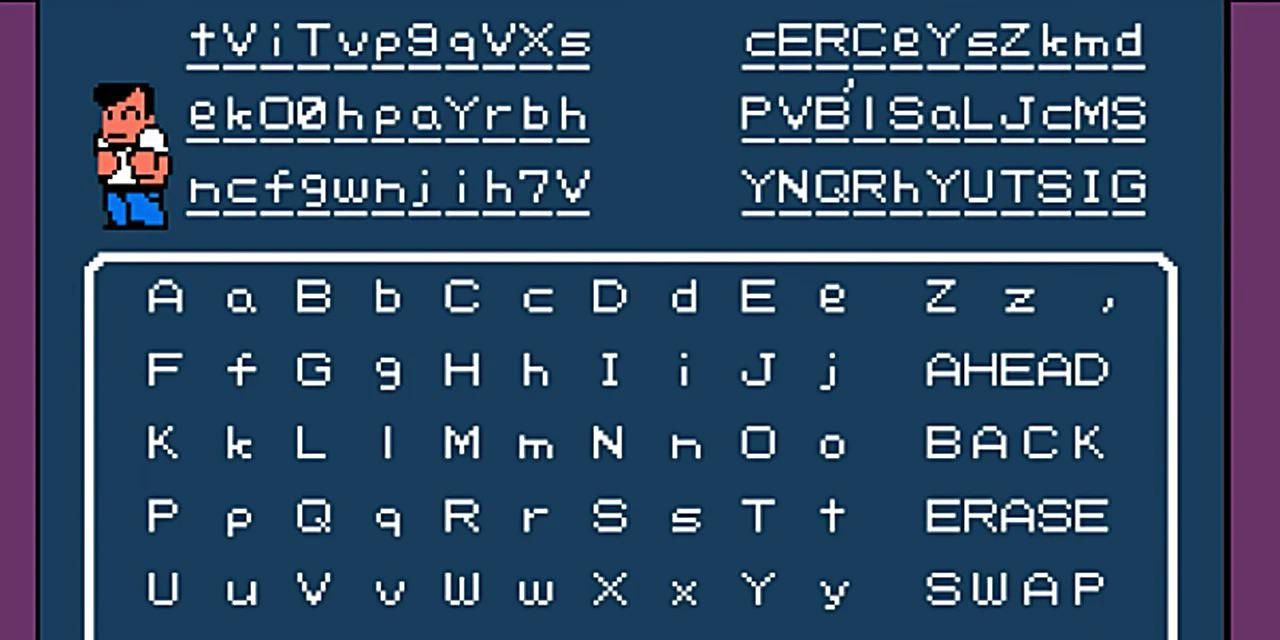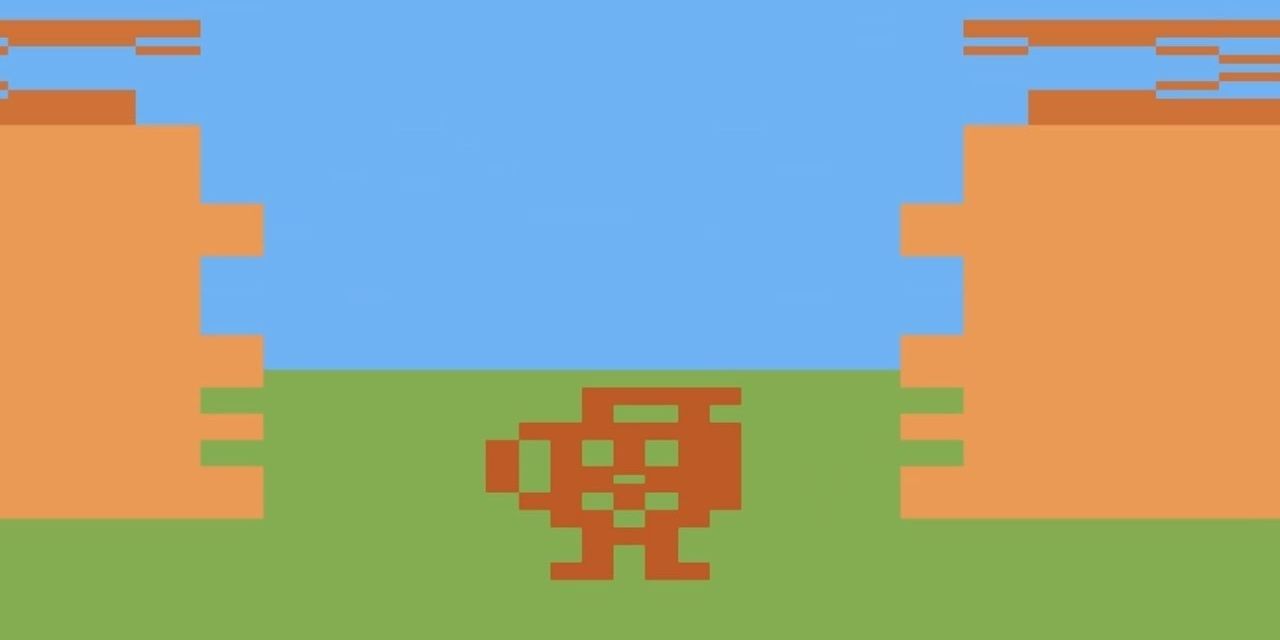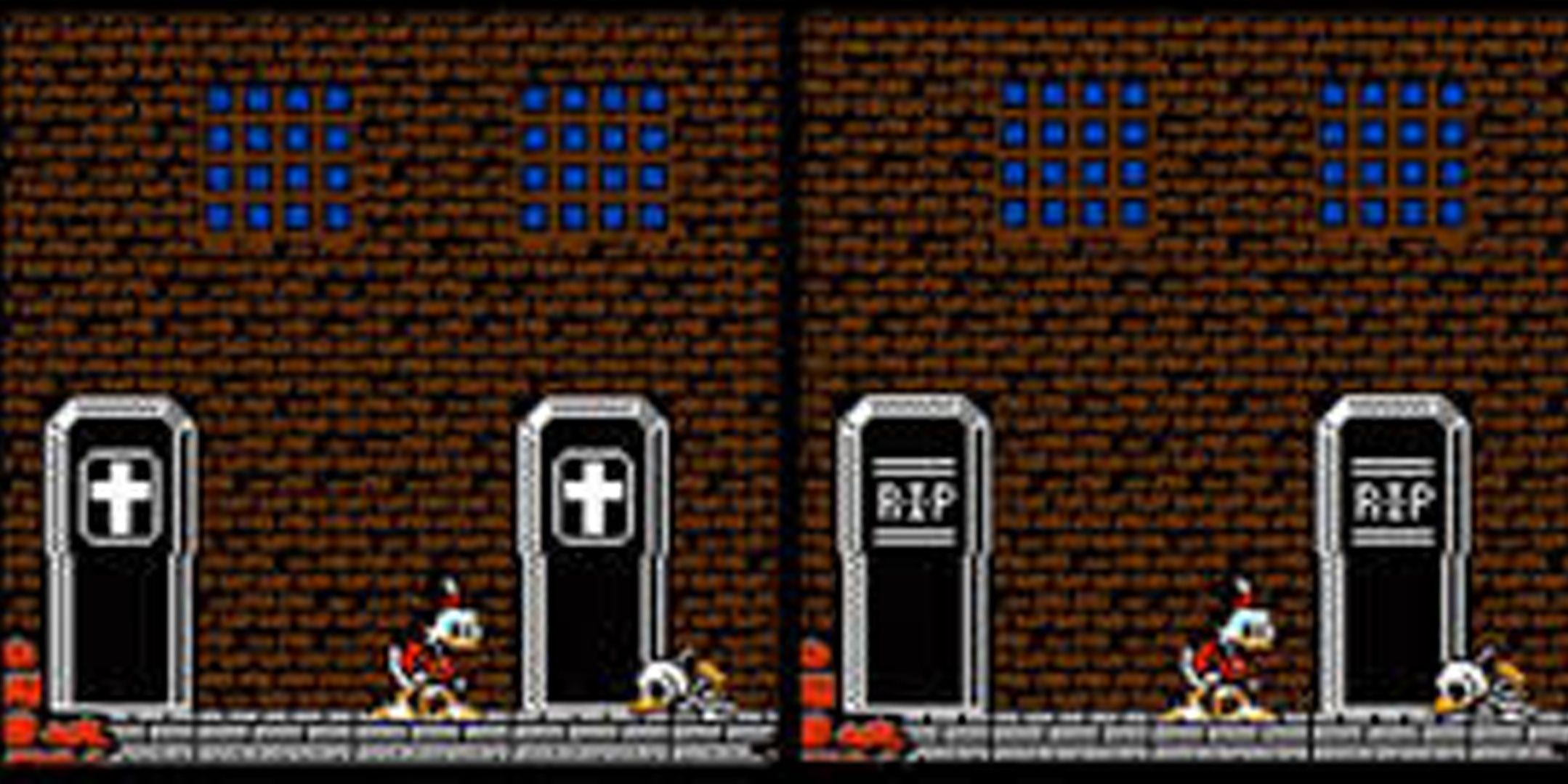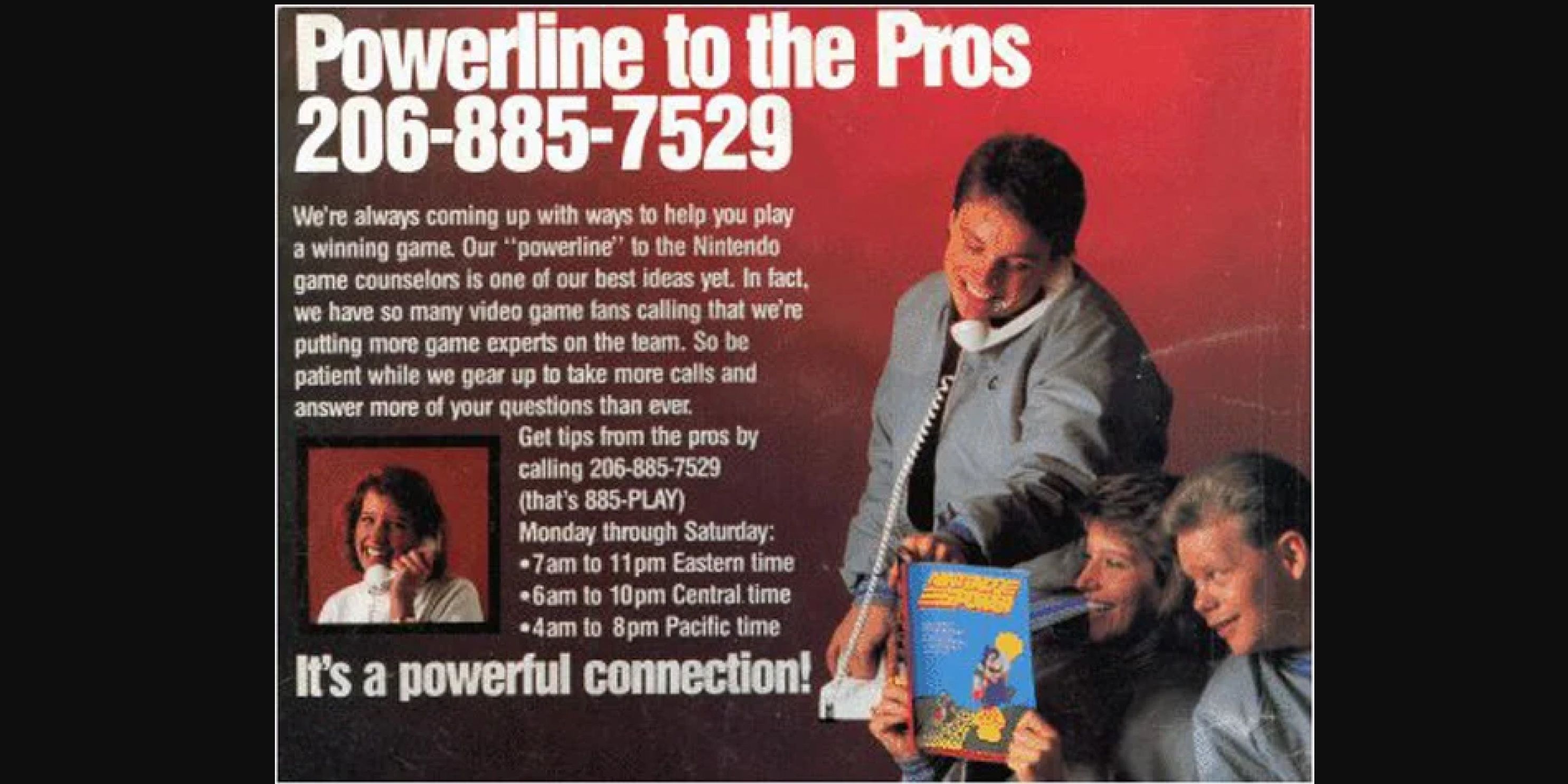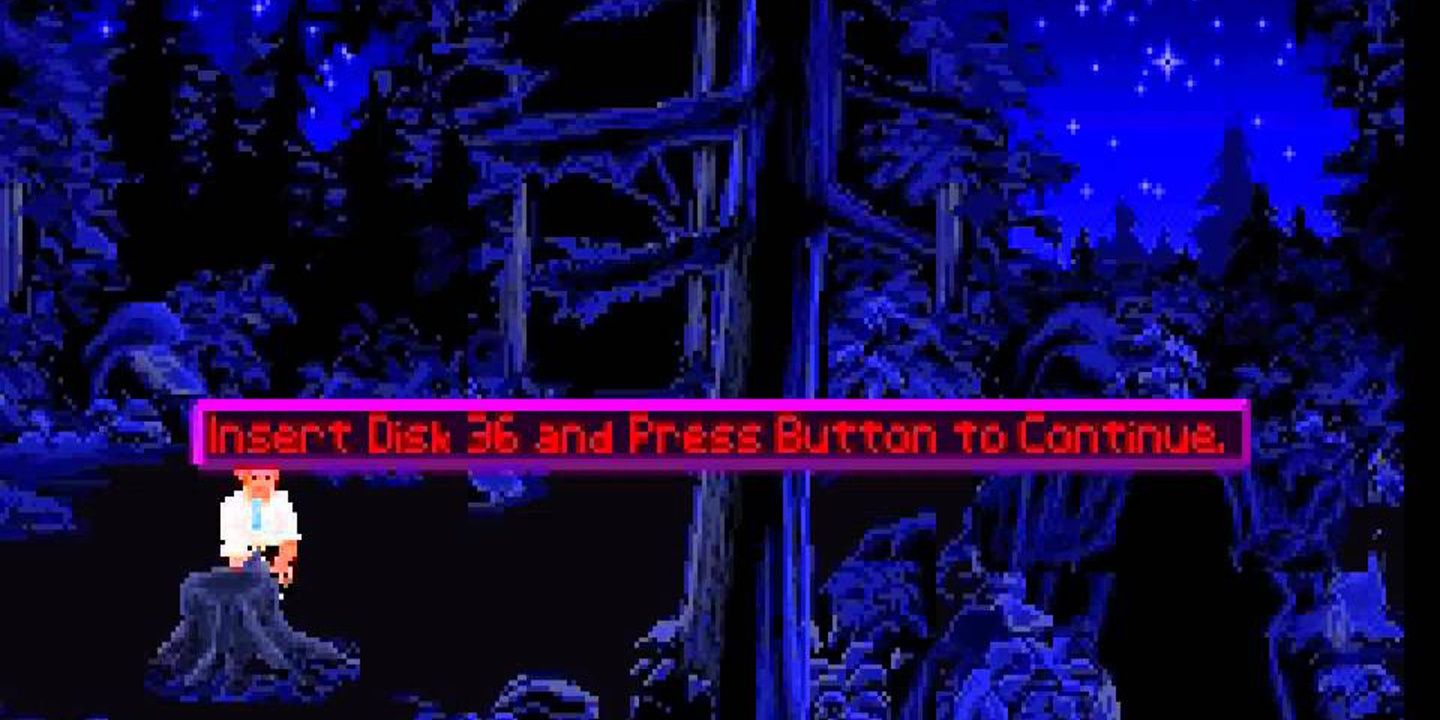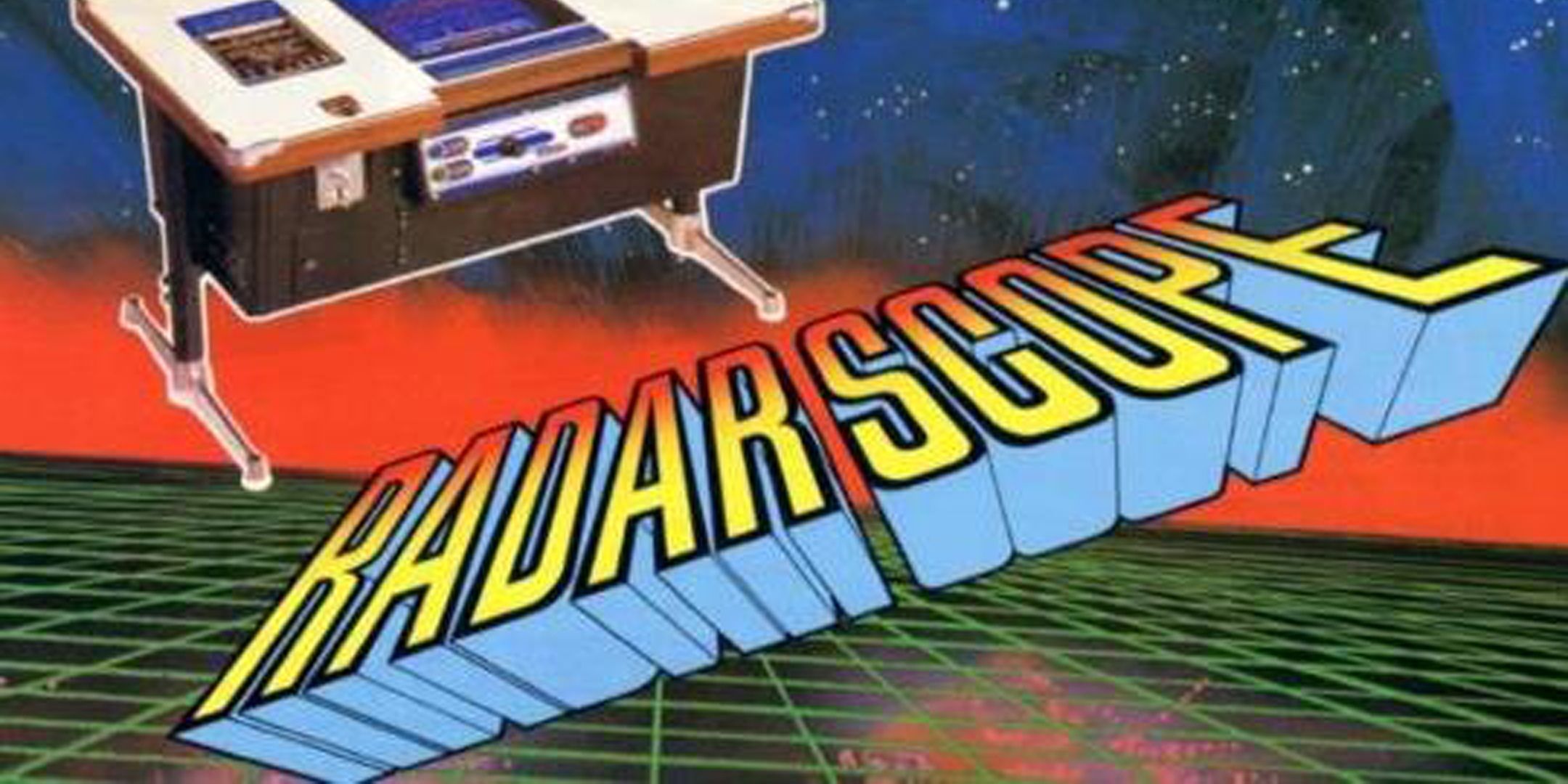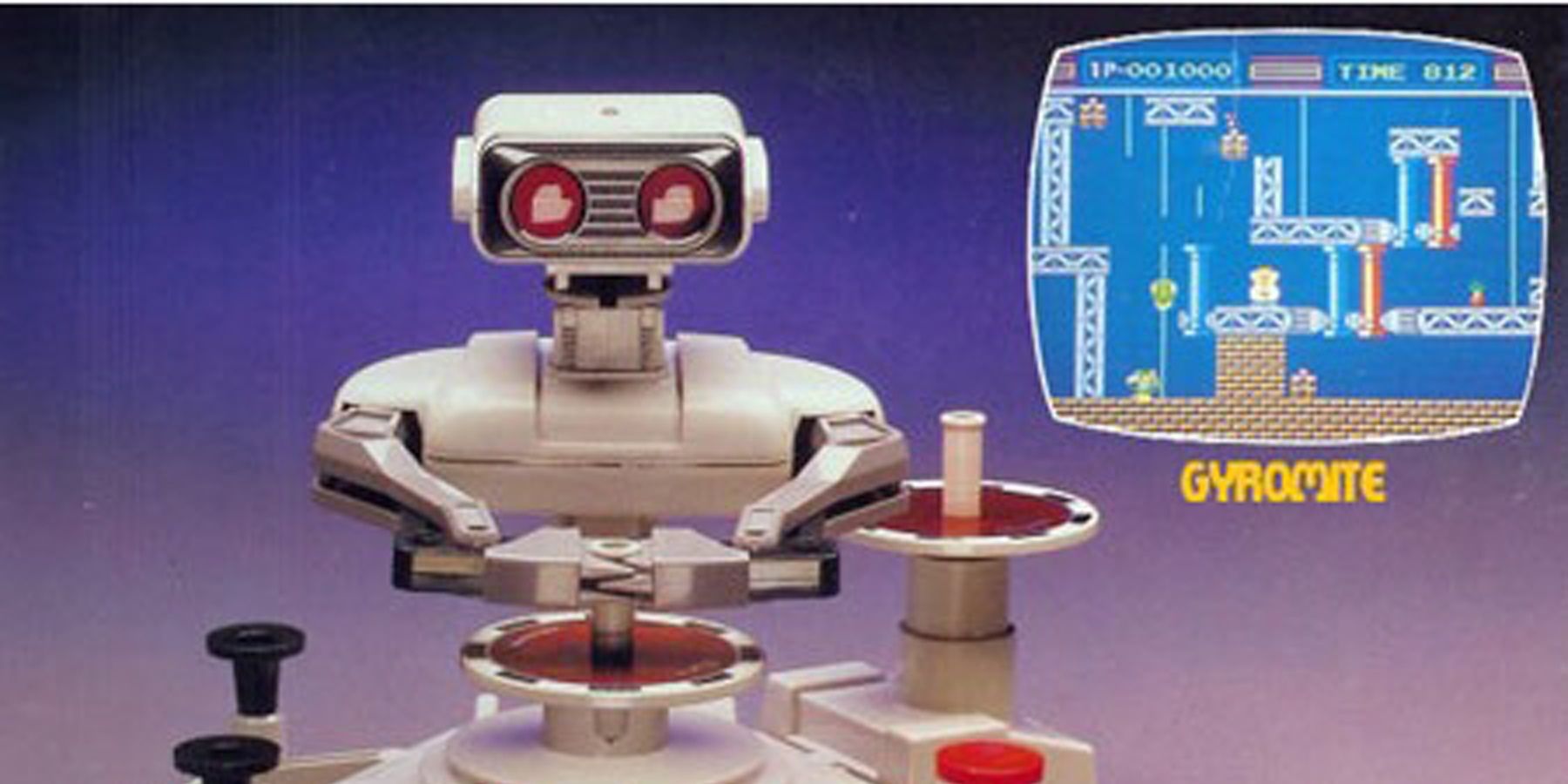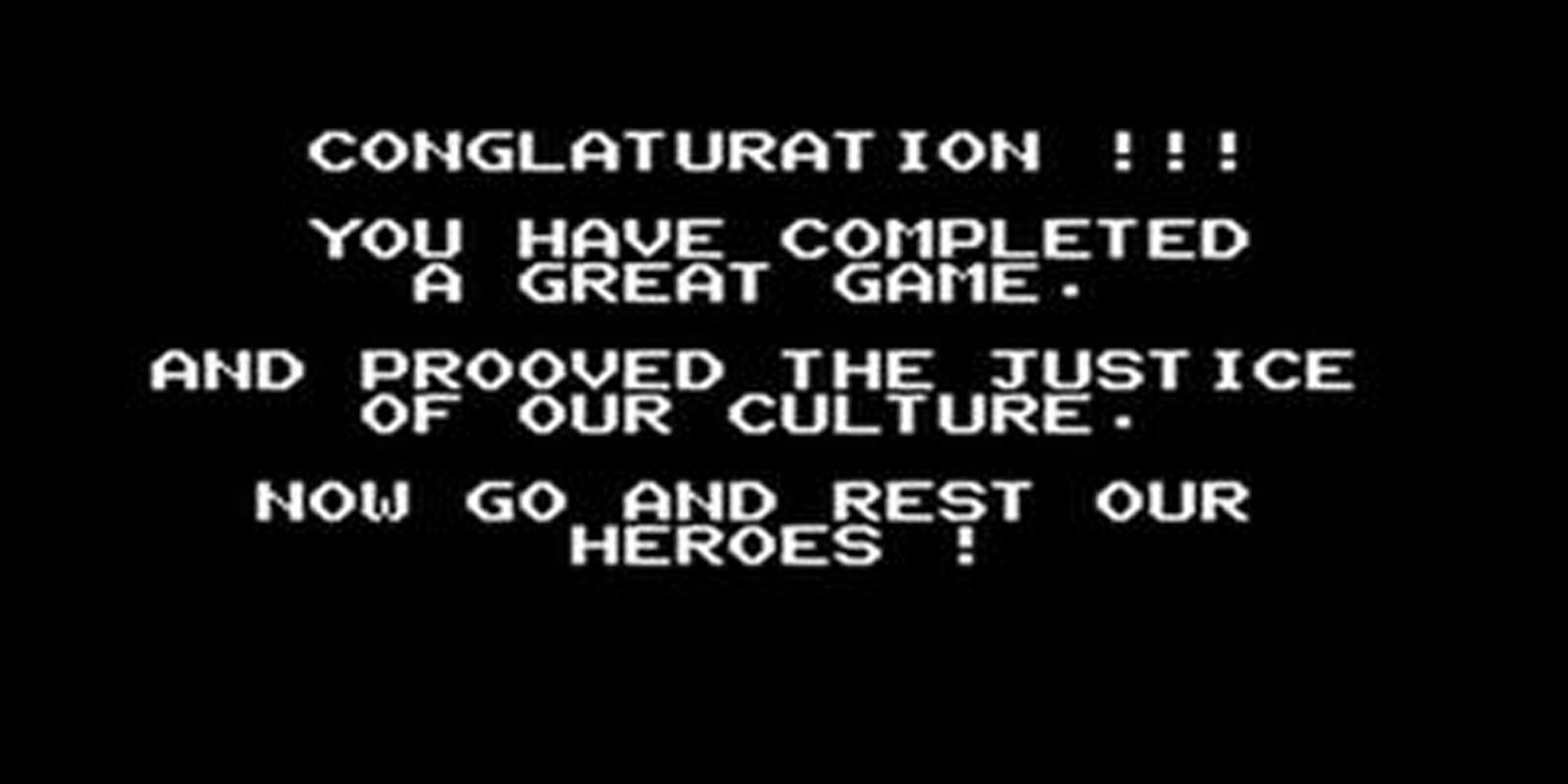While numerous electronic games can be traced as far back as the 1950s, the 80s was the decade where they widely became commercially available to the public. Arcade titles like Pac-Man gave consumers a fever, while the Atari 2600 and Mattel's Intellivision satiated those who wanted to play at home. The possibilities that lay ahead seemed utterly boundless.
However, many shortsighted and bone-headed decisions would cause the Western games industry to decline and eventually undergo a recession in 1983. Had companies like Nintendo and Sega not come forth to put a stop to these trends, the gaming industry might not even exist today.
10 Game Developers Were Given No Credit
To prevent companies from poaching their talent, Atari executives disallowed any credit to the programmers of their titles. This stubborn unwillingness to acknowledge the talent behind these great games led to the creation of the first Easter egg by a disgruntled developer.
In the game Adventure, players who know where to look can find a hidden room that displays text which reads "Created by Warren Robinett." When it was discovered a year later, a figure at the company named Steve Wright argued for the message to remain intact as it gave players an incentive to keep playing in the hopes of discovering more secrets.
9 Arcade Titles Just Gobbled Quarters
Many arcade titles used underhanded tactics to fleece gamers out of their hard-earned quarters. Beat 'em ups featured suspect hit detections and enemies who used cheap attacks to end players' sessions. Double Dragon II was a particularly nasty example as it was much more difficult than its predecessor and featured a grueling boss rush section.
Interactive movie titles like Dragon's Lair and Cliff Hanger could only be bested through sheer trial and error as there was no way a player could know which button they had to press to progress through the story.
8 No Saves Meant Long And Annoying Passwords
Gamers nowadays take saving features for granted, but in the 80s, they were almost entirely nonexistent in the console market. While Sierra adventure titles practically designed their adventures with the knowledge that savvy players would constantly be saving their progress, console titles used alternative methods for players to pick up where they left off.
Battery backups for game carts were rather expensive back then, so as a cost-saving measure, many titles elected to utilize passwords that would keep track of players' progress. Unfortunately, many of these were long and cumbersome in the case of titles like River City Ransom.
7 The Industry's Lack Of Regulation Led To Terrible Titles
Atari used to manufacture their own titles for the 2600 before several dissatisfied employees quit and formed Activision. This paved the way for other third-party developers whose quality varied wildly. Unfortunately, the market eventually became oversaturated with terrible titles such as Custer's Revenge and Chase the Chuck Wagon.
This was one of the many factors that caused the Western games crash of 1983. When Nintendo and Sega entered the hardware industry, every title submitted for their console had to undergo a rigorous approval process before release. That's why every official commercially released title back in the day featured their Seal of Quality on the box.
6 Nintendo's Censorship Policies Were A Tad Excessive
With its rigorous approval system, Nintendo deserves a lot of credit for making the industry viable in Western markets again, but it did go a bit too far in some places. For example, Nintendo of America strictly forbade the depiction of any religious iconography, violence, or sexual themes in any of their titles.
Most of the time, this meant removing a cross or two from specific NES titles. However, during the process of porting Maniac Mansion, the team was forced to change several jokes and environments to meet Nintendo's guidelines. Douglas Crockford later detailed the absurd changes that Nintendo mandated on his official blog.
5 Before The Internet, There Were Costly Hint Hotlines
If gamers nowadays get stuck on a challenging section, they can immediately pull out their phone and find a playthrough on YouTube or even a guide from numerous gaming sites. However, in the 80s, solutions weren't nearly as convenient or cost-effective. If players got stuck, their only recourses were to buy a strategy guide, call a costly hotline, or just give up and play something else.
Many games, such as Sierra's graphic adventures, seemed deliberately designed to frustrate players to the point that they'd be willing to give in and fork over the dough needed for a hint book or call some hotline to progress just a little further.
4 PC Games Required Switching Between Numerous Floppies During Play
With the extra space afforded to Blu-ray discs, it's rare for gamers to have to use more than one disc when playing physical copies. Players can even elect to go entirely digital, thanks to stores like Steam and GOG. However, PC games, particularly those that emphasize narrative, commonly required players to switch between numerous floppy discs just to explore a single room in a game.
This was even lampooned in a section of The Secret of Monkey Island, where players discover a stump in the forest and are told to switch to a number of discs that are not included.
3 The Market Became Oversaturated With Space Shooters
Taito's Space Invaders opened the floodgates for a wave of interstellar shooters in the arcades. Namco followed suit with superb titles such as Galaxian and Galaga, which added further refinements to the formula established in Taito's efforts. However, the market became oversaturated with these space-faring shoot 'em ups, and it wasn't long until consumers were starving for something different.
When Nintendo entered the arcade scene with their title Radar Scope, the title floundered in Western markets. Fortunately, this forced the company to turn to a young upstart named Shigeru Miyamoto, who changed the gaming landscape forever.
2 Gaming Was Seen As A Passing Fad
After the Western games crash in 1983, the industry was perceived as financially unviable and a passing fad. Many great titles, such as Q-Bert, went unnoticed because the industry still felt the effects of Atari's failure. So when Nintendo entered the hardware business in North America, they were very careful to avoid advertising their console as a gaming platform.
The Family Computer was released in Western territories as The Nintendo Entertainment System. It even came bundled with a toy robot named ROB in order to disguise the console's gaming nature.
1 Localizations Ranged From Inaccurate To Hilariously Awful
With numerous Japanese titles finding their way stateside, many of them suffered from translations made by people who didn't care or lacked proficiency in the English language.
While many of these translation blunders have provided some good chuckles, they would have undoubtedly botched the tone of several well-written titles, such as Earthbound or Silent Hill 2, had they been allowed to continue. It's largely thanks to the efforts of localizers such as Ted Woolsey and Jeremy Blaustein that gaming translations would emerge from this unintentionally hilarious period.

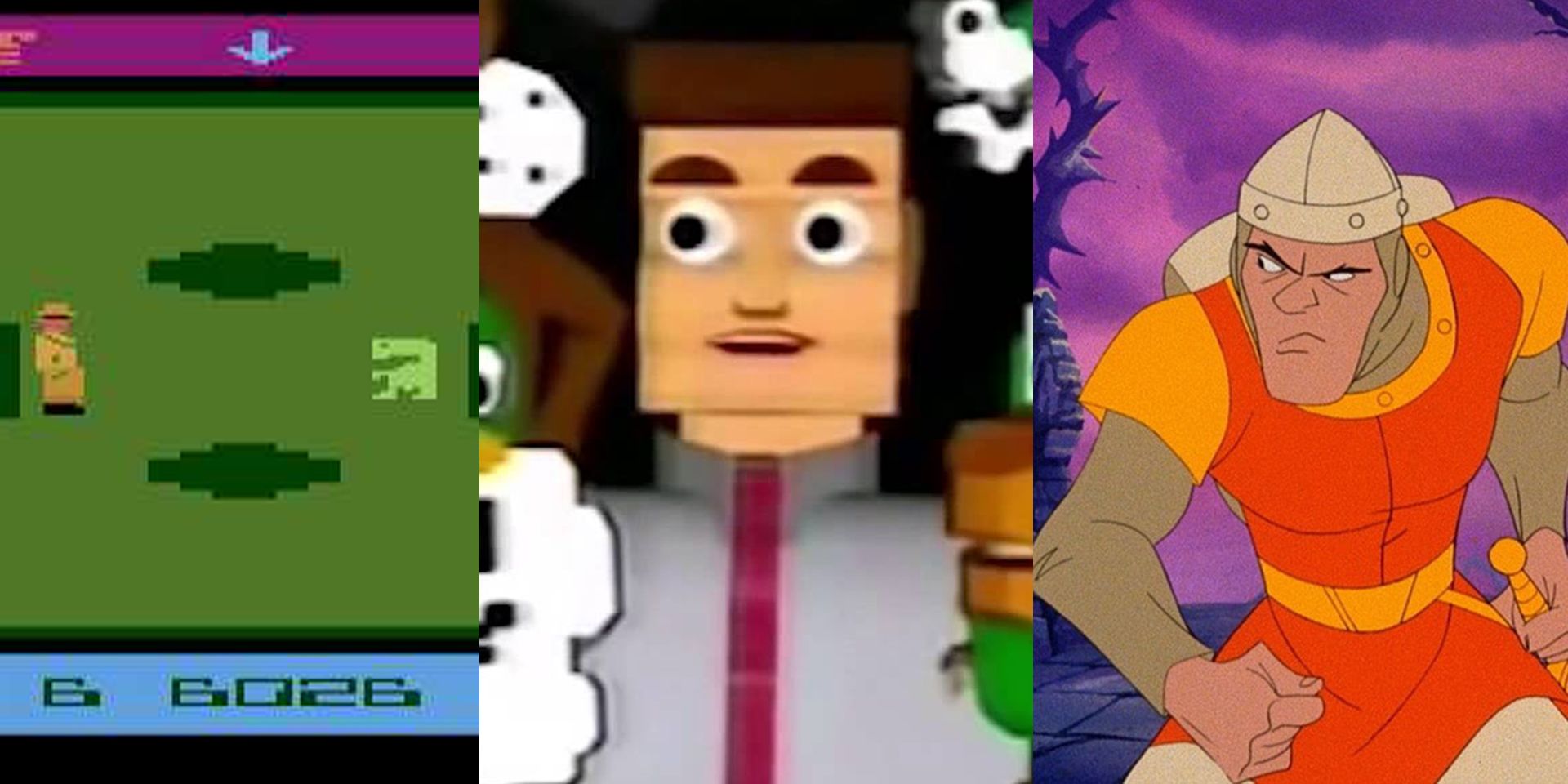

-Cropped.jpg)
